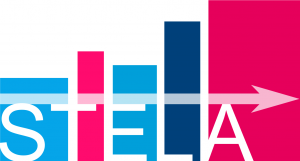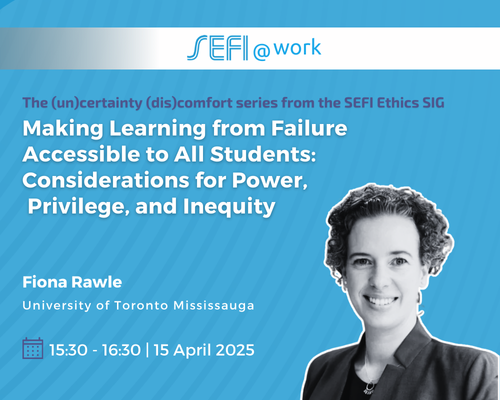Dear Members and Partners, We are pleased to share with you SEFI’s Strategic Plan for…
 STELA is an acronym for Successful Transition from secondary to higher Education using Learning Analytics. As the full name suggests the main question that drives our project is “How to apply learning analytics to support the transition from secondary to higher education?”. More specifically, our area of focus is from months prior to entry until the end of the first year. The transition to higher education is challenging both from the academic and social perspective: adjusting to the life at the higher education institute, getting to know the academic expectations in higher education, evolving to independent learners, etc. The STELA project develops, tests, and assesses a learning analytics approach for the specific challenging field of transition from secondary to higher education. By applying the developed approach to diverse educational contexts (different countries, different admission policies, different faculties), we aim at developing an approach with a clear potential for mainstreaming and for extension to other fields than the transition. Moreover, we translate our experiences to policy recommendations concerning the use of learning analytics to raise the quality in education. Four main features characterize our project: student-centered, beyond identifying at-risk students, scalability beyond single class, and actionable feedback.
STELA is an acronym for Successful Transition from secondary to higher Education using Learning Analytics. As the full name suggests the main question that drives our project is “How to apply learning analytics to support the transition from secondary to higher education?”. More specifically, our area of focus is from months prior to entry until the end of the first year. The transition to higher education is challenging both from the academic and social perspective: adjusting to the life at the higher education institute, getting to know the academic expectations in higher education, evolving to independent learners, etc. The STELA project develops, tests, and assesses a learning analytics approach for the specific challenging field of transition from secondary to higher education. By applying the developed approach to diverse educational contexts (different countries, different admission policies, different faculties), we aim at developing an approach with a clear potential for mainstreaming and for extension to other fields than the transition. Moreover, we translate our experiences to policy recommendations concerning the use of learning analytics to raise the quality in education. Four main features characterize our project: student-centered, beyond identifying at-risk students, scalability beyond single class, and actionable feedback.
The project consortium consists of KU Leuven (Belgium), TU Delft (The Netherlands), TU Graz (Austria), Nottingham Trent University (United Kingdom), and SEFI (European Society of Engineering Education). The project started in November 2015 and has a duration of three years.
The project is currently at full speed. KU Leuven and TU Delft have, thanks to the project, already run specific learning analytics interventions. TU Delft has focused on applying the learning tracker to their MOOCs on edX, while KU Leuven has launched two interventions impacting 13 programs and more than 1500 students. TU Graz has worked on developing open source learning analytics solutions to support the interventions. Nottingham Trent University, a smaller partner in the project, was already running a large-scale learning analytics platform focusing on student engagement. Thanks to the project the expertise and experiences of NTU can be shared in the project consortium.
More information on the project is available on our webpage: http://stela-project.eu/.
Tinne De Laet, Project Coordinator & Promotor, KU Leuven
* The STELA project is an Erasmus+ Forward Looking Cooperation project (562167-EPP-1-2015-1-BE-EPPKA3-PI-FORWARD) 

